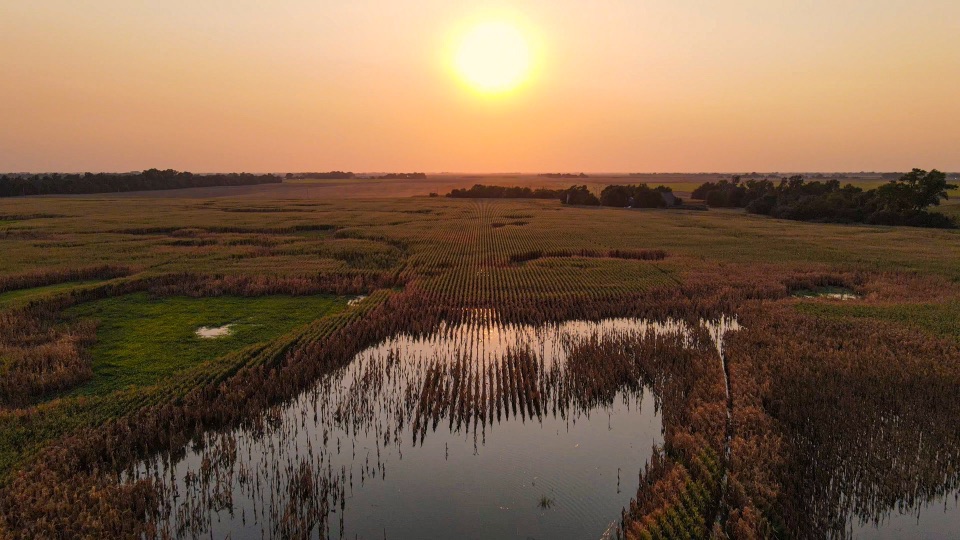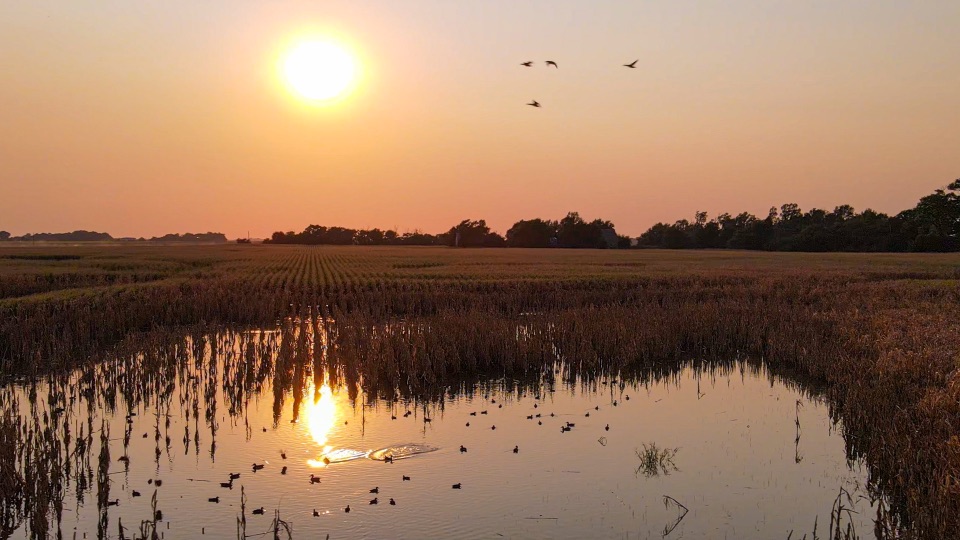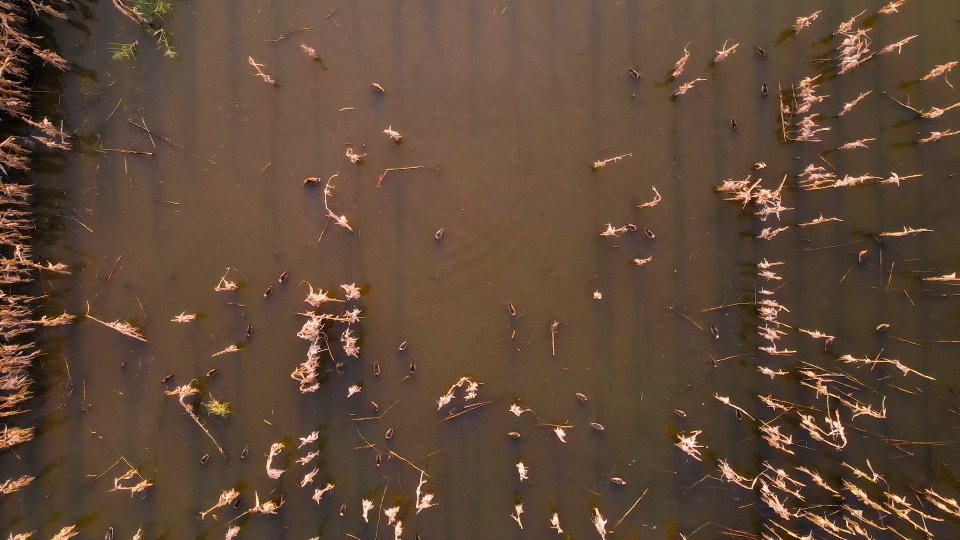



Sign in
Sign in to save favorite properties and equipment, save your search parameters and more
Don’t have an account yet? Sign Up Now
Sign up
Already have an account? Login Now






Sign in
Sign in to save favorite properties and equipment, save your search parameters and more
Don’t have an account yet? Sign Up Now
Sign up
Already have an account? Login Now
When it comes to vast swaths of land, it doesn’t seem like 300 yards affects if that land serves its purpose. Give a partial river bank here, take a slice of sand bar there. It’s all the same in the grand scheme, right? Not exactly, and according to professional recreational real estate agents, Jake Hyland and Taylor Dunnigan, definitely not when it comes to looking for prime waterfowl hunting land. Spend a moment talking with these two about finding the perfect property for duck hunting, and you’ll quickly learn how situational an effort it is. “Acre-to-acre, foot-to-foot,” according to Taylor.
Buying waterfowl hunting land for personal recreation or as an investment isn’t easy. Taylor says, “It might be once every five years that a duck hunting property in your budget comes up for sale. And you need to be ready.” It’s why Jake and Taylor are the people you want to talk to if you’re in the market for the waterfowl hunting property of your dreams. They’re both seasoned recreational real estate agents with a long history buying and selling this type of property. But their expertise extends well beyond that. Both grew up smack in the middle of some of the best duck hunting on Colorado’s Front Range. They went on to guide on some of the most coveted goose and duck hunting land in the country. Give these two a few minutes walking a potential property and they can tell you if it’s worth your time or not.
We spent some time with Jake and Taylor – goose and bird dog pictures mounted on the wall squarely behind them – to learn more about finding the ideal waterfowl property and getting their expert advice on buying duck or goose hunting land.

These two agents have a four-point checklist when looking for prime duck hunting land: food, refuge, open water and location.
According to Jake and Taylor, water controls everything when you’re hunting waterfowl. It’s where birds take refuge – a spot where they can loaf and hang out. It’s why finding duck hunting land with an ideal water source is not only essential, it’s also important for the overall management and use of the property as it can affect other aspects such as flight paths and feed for waterfowl. If water doesn’t currently exist on the property, is there an opportunity to catch water and move it around? The abundance of duck- and goose-friendly water is what makes South Dakota, Nebraska and Arkansas so good for waterfowl hunting.
But there are other great regions for duck hunting property, if you’re working with a real estate agent who knows where to look and what to look for. Certain areas in the Midwest and along the Mississippi and Platte Rivers can also offer ideal waterfowl hunting land ownership opportunities.
Very. Historical flyways are important for waterfowl hunting properties because they indicate the migration patterns of ducks and geese. And they can shift. Taylor points out that we’re starting to see shifts in the flyways wherein geese are moving much farther west. In fact, migration can shift 50 to 75 miles east or west of a particular zone. It’s why agent knowledge about the location and history of the property is so valuable in determining its potential for waterfowl hunting.
Taylor also looks at agriculture and other large bodies of water around the subject property. One of his biggest considerations on behalf of his clients is pressure. For example, 200 acres of hunting property that borders 2,000 acres of public land can be a catch 22. If you can find a collective of private landowners all managing for the same purpose – hunting waterfowl – you’ll do ten times better.
Jake notes the time of year.
“It’s easy to assume a property is ideal for duck hunting in the fall or early winter when you can see the ducks. But our knowledge shines when we visit a property mid-summer and need to paint the picture for a potential client. We might see three ducks during that time, and the client has to trust our knowledge and experience about the flyways and potential of the land.”


There are various ways to generate income from a hunting property, such as leasing it to farmers or conservation organizations. Taylor chimes in, “If you’re looking at a property that has everything – water, ag, etc. – you can rent that land out to a farmer and then reap some of the benefits of the harvest. I also know guys who will contact Denver University to put properties under conservation easements. If you’re solely a hunting property, these easements improve the habitat, which improves the hunting. These easements do come with some restrictions, so it’s important to understand those before going down this path.”
Habitat maintenance is important for fostering the property as a viable resource for wildlife. Land improvements such as fencing, hunting pits, ground blinds and other infrastructure also add value. Wildlife photography, videography and trail cams are an excellent way to document migration patterns and wildlife land use for future sales opportunities. Jake even tells us of a client who keeps a rolodex of duck kills, taking pictures of ducks on the property, which can come in handy when talking with potential buyers or guides.
Back to water, water management is another key way to improve the quality of your duck hunting investment or recreational property. This can include flooding or water capture that improve the habitat, but these measures will be regulated differently in different states. Colorado, for instance, can be a difficult place to move water due to irrigation restrictions, which is why it’s important to understand what it means to own land with water rights in Colorado. According to Jake and Taylor, if you can move water on your waterfowl hunting property, that’s huge. You’re maximizing improvements to your duck hunting land and what it can do.


Very important. And Jake and Taylor can’t emphasize this enough, for good reason. Jake notes, “Duck hunting properties are the highest supply and demand right now when it comes to recreational or investment hunting land. There just aren’t that many of them per the factors we’ve talked about. There isn’t a surplus.”
Taylor adds, “There are properties that were good 20 years ago, and they’ll probably be good in 20 years. They’re just historically special properties. However, there are parts of the country where duck hunting is absolutely terrible. There are parts where it’s really good, but finding special properties comes down to working with a recreational land agent who is knowledgeable and has the expertise on waterfowl hunting in a specific regional flyway.”
If there’s still a question as to whether or not Jake and Taylor are experts on the subject of waterfowl hunting properties, Taylor puts those to rest. “We both grew up obsessing about this hobby and guiding all over the country. And now it gets to be our career. Jake and I have put in that time.”
Jake continues, “It’s a passion. It’s the pinnacle hunting property and inventory is slim. We know where to look and what to look for. We view ourselves more as advisors than traditional real estate agents when it comes to this type of property transaction. We’ll work with some clients for years finding them the right duck hunting property within their budget.”
It’s a relationship that goes beyond the exchange of cash and land. Jake and Taylor stay in touch with their clients, providing advice and counsel on how to better the land and optimize the hunting. “Reach out to us, even if it’s early on, so we can understand what you’re looking for. We have the inside track.”